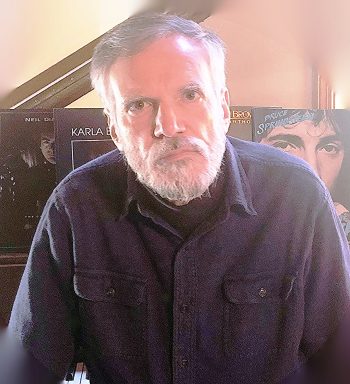
About Peter Sarno:
Peter Sarno taught literature and memoir courses at the University of Massachusetts, Boston and has published essays, reviews, and short stories.
While a graduate student at UMass, he won the Donald E Cookson prize in nonfiction. His work has appeared in The Boston Globe, Music World magazine, Sweet Potato, Gannet newspapers, Gatehouse Media, and other outlets.
What inspires you to write?
Slice of life tales of working class people who sometimes act heroically, mostly accept each other's frailties, and usually try to face each new day with courage, resolve, and humor.
What authors do you read when you aren’t writing?
A tough question to ask of a lit professor (smile). There are dozens. Fitzgerald, Ann Beattie, Andre Dubus, Jr., Ann Patchett, Roland Merullo, Richard Russo, Anne Tyler, Billie Letts, Susan Cheever, Maya Angelou, Denise Duhamel, Susanna Kaysen, Joe Torra, Marge Piercy, Alice Munro—and, early on, the Russians, Camus, Ibsen, Dick Gregory, John Cheever, Eugene O'Neill…
Tell us about your writing process.
I know (and respect) authors who outline and use whiteboard techniques etc., and they usually complete their manuscripts a lot quicker than I do. But, for better or worse, I seem to have to accompany the characters along the journey. I may have some general idea how one of my short stories or novels will end—but not a definitive one. To know exactly where I was—or my characters were—headed would deadened the experience for me, take the fun of discovery away. And, I rely on my editors and early readers to point out what isn't working and to ask me questions. The problem with this process of course is that it takes me a great deal longer to complete a work. And, at my age, that's not a good thing (smile).
What advice would you give other writers?
Find and hire a good and trustworthy editor. Stay away from negative people. Read a lot of stuff–at least in your genre of choice. Don't feel guilty when those other folks tell you that you MUST write every day. How the 'f' can that be accomplished by most of us? And I think that type of direction discourages an aspiring author and provides one more reason for him or her to give up. Find the time that you can to write and try to keep it sacred–no matter how limited it is. Other authors don't know your lifestyle, your responsibilities, what's on your shoulders. 'F' them, and do the best you can with the time you have.
How did you decide how to publish your books?
I have an Indie house that has published 50 plus titles during the past decade–some of these by major best-selling authors. There was some interest in "Visions of Johanna" by a few small firms. And, I had no interest in publishing the novel myself, but in the end, I thought if I were to, I could do more to promote it. And I know it sounds absolutely strange, but in my mind, characters like Johanna, Heather, and Aubrey deserved the extra effort.
What do you think about the future of book publishing?
Few publishing firms have the inclination or finances to nurture beginning authors. In addition, our attention spans are decreasing—as well as our interest in devoting the time to full-length books. I can see that decline in my own twelve-year-old granddaughter's reading activities. So, I'm pessimistic. I certainly would prefer not to be, and do hope I'm wrong.
What genres do you write?: literary fiction
What formats are your books in?: Both eBook and Print
Website(s)
Peter Sarno Home Page Link
Link To Peter Sarno Page On Amazon
Your Social Media Links
Goodreads
All information in this post is presented “as is” supplied by the author. We don’t edit to allow you the reader to hear the author in their own voice.
